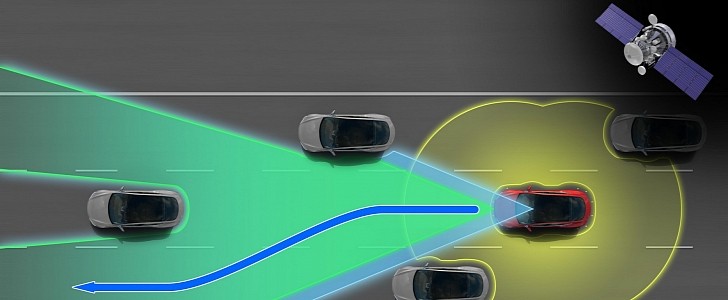You know Christoph Lindner from other stories we have published about Tesla defects. He is the attorney that got Tesla to buy back a Model 3 in March because of the Full Self-Driving (FSD) equivalent it sells in Germany. That was in March. In June, Lindner sued Tesla again after it sold a Model 3 with cracked jacking points. This case is still being judged. However, Lindner beat Tesla in court again due to the “massive hazard” Autopilot represents.
These are the words the Munich I district court used to describe the system after analyzing a technical report. It also said it is unreliable and does not recognize obstacles, such as the lane narrowing that occurs when construction work happens on the road. Another problem the verdict named relates to phantom braking, which brakes the vehicle unnecessarily after detecting obstacles that are not really there. This is where the court said Autopilot represented a “massive hazard,” particularly in city centers.
Tesla’s response to that was that Autopilot is not intended for urban use. According to Der Spiegel, the court ignored the EV maker’s allegations and ruled that Tesla would have to buy back the Model X that had these issues. The court argued that switching Autopilot on and off when entering and leaving highways could become a dangerous distraction from traffic, possibly due to the specific procedures to do that on a Tesla. After all, most cars with cruise control also require this operation.
With that decision, Tesla will have to pay this German customer around €112,000 ($112,986 at the current exchange rate) to repurchase the “defective” Model X. We have no idea if the decision includes emotional damages or anything of the sort. As Tesla did in previous cases, it will undoubtedly appeal the decision, primarily because of the implications this case may have. If Autopilot is defective in this Model X, it may be considered problematic in all vehicles Tesla has sold in Germany so far.
Lindner has a website called TeslaAnwalt (Tesla Attorney) to warn people about Tesla vehicles' defects and offer his services to help them solve them in German courts. With his success rate, we will probably hear about him a lot more here.
Tesla’s response to that was that Autopilot is not intended for urban use. According to Der Spiegel, the court ignored the EV maker’s allegations and ruled that Tesla would have to buy back the Model X that had these issues. The court argued that switching Autopilot on and off when entering and leaving highways could become a dangerous distraction from traffic, possibly due to the specific procedures to do that on a Tesla. After all, most cars with cruise control also require this operation.
With that decision, Tesla will have to pay this German customer around €112,000 ($112,986 at the current exchange rate) to repurchase the “defective” Model X. We have no idea if the decision includes emotional damages or anything of the sort. As Tesla did in previous cases, it will undoubtedly appeal the decision, primarily because of the implications this case may have. If Autopilot is defective in this Model X, it may be considered problematic in all vehicles Tesla has sold in Germany so far.
Lindner has a website called TeslaAnwalt (Tesla Attorney) to warn people about Tesla vehicles' defects and offer his services to help them solve them in German courts. With his success rate, we will probably hear about him a lot more here.






















